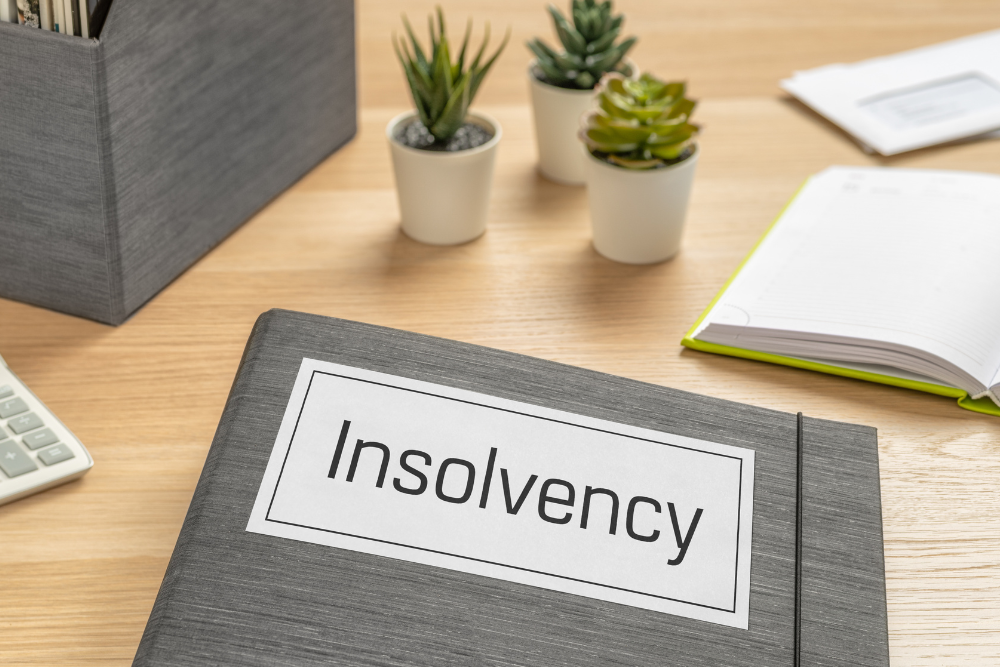See This Report on Insolvency Practitioner
See This Report on Insolvency Practitioner
Blog Article
10 Simple Techniques For Insolvency Practitioner
Table of ContentsThe Buzz on Insolvency PractitionerSome Known Details About Insolvency Practitioner Insolvency Practitioner - QuestionsThe Single Strategy To Use For Insolvency PractitionerThe Single Strategy To Use For Insolvency Practitioner
Whether or not you require to make use of an insolvency professional (IP) to liquidate your company depends on various elements. While engaging a bankruptcy practitioner for all kinds of liquidation is not a legal requirement, doing so can frequently enhance the process and make sure conformity with legal needs. Liquidating a company is a vital decision that comes with considerable consequences.
It is a treatment utilized when a company does not have any type of financial institutions, or all of their financial institutions can be settled in full with statutory rate of interest. Recognizing the various types of insolvency procedures can help you determine the most effective strategy for your firm's liquidation or other official insolvency treatments itself.
This is required in order to follow lawful requirements - Insolvency Practitioner. This is due to the fact that IPs have the required qualifications and experience to ensure that the liquidation procedure is carried out based on all appropriate regulations and laws. By engaging a licensed bankruptcy specialist, you can have satisfaction knowing that your business's liquidation procedure will be dealt with professionally and in compliance with the relevant lawful requirements
A Biased View of Insolvency Practitioner
The insolvency practitioner is assigned as a liquidator and is accountable for taking care of the business and liquidator's financial debts impressive obligations and possessions. This process includes liquidating the firm's properties and dispersing the profits to financial institutions. Upon completion of the process, the company is eliminated from the register at Business House.
Falling short to do so can result in personal responsibility for the firm or director for the financial institution's financial obligations. Volunteer liquidation, that includes Financial institutions' Voluntary Liquidation (CVL) and Participants' Voluntary Liquidation (MVL), is started by the company's directors and shareholders when they can no more pay their debts. In a CVL, the insolvency practitioner is designated as the liquidator, responsible for handling business financial debts and all company possessions.

The smart Trick of Insolvency Practitioner That Nobody is Talking About
By evaluating the proficiency and experience of potential bankruptcy practitioners, you can ensure that you pick a practitioner that has the needed certifications to manage your business's liquidation procedure successfully. While bankruptcy practitioner-led liquidation is commonly one of the most proper program of action for companies dealing with insolvency, there are different strategies to consider, such as striking off and partial liquidation.
It's important to assess all offered alternatives prior to selecting the next ideal option or strategy for your service. Striking off companies' registers is a much more straightforward and cost-effective method to shut dormant or tiny firms without financial obligations or assets. To strike off a firm, its name is gotten rid of from the Firms House register by submitting kind DS01.
Prior to deciding for striking off, it's crucial to consider the advantages and downsides of this approach and take into consideration whether it's the best choice for your company. Partial liquidation is an additional alternative to insolvency practitioner-led liquidation, in which a business liquidates particular properties and responsibilities while remaining to run with the staying assets and obligations.
A Bankruptcy Practitioner will certainly have the ability to encourage you of the best training course of activity to take and guarantee that everything runs efficiently. Regrettably, it click to investigate is not feasible to liquidate a business without a liquidator. Designating an authorized bankruptcy professional is required for the process of volunteer liquidation to begin.
Insolvency Practitioner for Beginners
It is feasible to shut and liquidate your firm without utilizing a liquidator, given your firm is solvent and you satisfy the eligibility needs to liquify or liquidate it. If your company is financially troubled, you might be called for to utilize a liquidator and begin official insolvency treatments. Below are some other insightful write-ups regarding business liquidation in the UK:.
Remaining in a position where you're unable to pay your firm's creditors is incredibly difficult. In an effort to prevent enhancing the level of financial obligation, many business attempt to negotiate directly with their creditors and accept an informal setup. If the financial debt is fairly tiny and owed to one lender, and the creditor is being cooperative, participating in an informal financial debt arrangement is probably the very best remedy, instead than looking the web for 'an insolvency specialist near me'.
On the other hand, if there are several lenders and the degree of financial debt is large, financial institutions may not be so willing or cooperative. In order to prevent liquidation or personal bankruptcy, it is better to hire an insolvency professional to attract up formal propositions and bargain with financial institutions in your place.
Insolvency Practitioner Things To Know Before You Get This
Whilst it is a method to take care of financial debt, there are significant risks included with this sort of financial debt arrangement - Insolvency Practitioner. If a creditor is willing to get in More hints into a casual plan (IA) where the debtor has actually accepted make routine, if lower, settlements to pay back the financial obligation, it is very important to stay with the contract
.jpg)
As a result, the financial institution is within their civil liberties to revoke the contract and petition the courts for your company to be sold off at any type of time. A formal arrangement that has actually been proposed by a bankruptcy professional on your behalf, and concurred by a financial institution, gives a much more secure official website choice.
Report this page